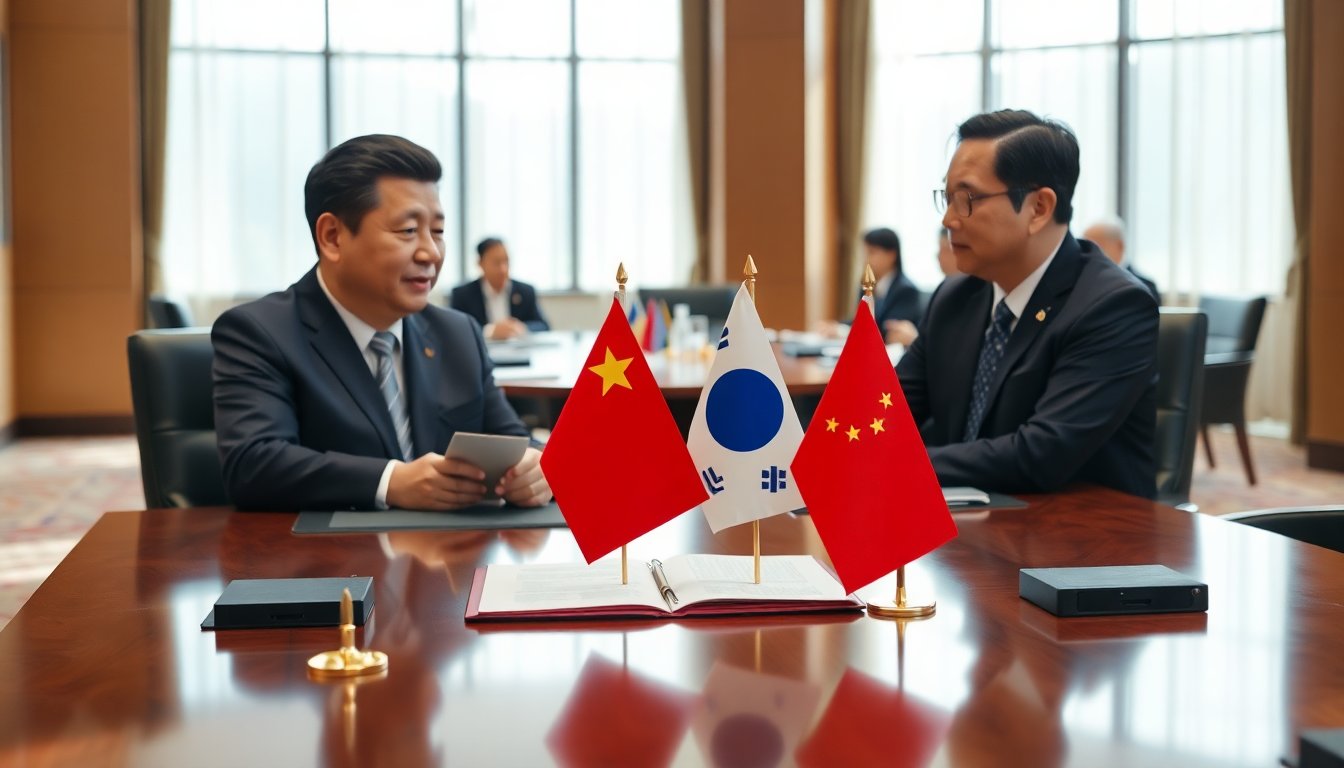Table of Contents
During the recent APEC summit in Gyeongju, South Korea, a significant meeting occurred between Chinese President Xi Jinping and South Korean President Lee Jae-myung. This marked their first direct conversation since Lee assumed office in June. The summit provided a platform for both leaders to discuss pressing topics, including the need for enhanced cooperation and efforts toward denuclearization.
This meeting was particularly noteworthy as it was Xi’s first official visit to South Korea since 2014, underscoring the importance of the relationship between these two nations. Lee’s diplomatic approach aims to balance South Korea’s longstanding military alliance with the United States while managing relations with China and Russia carefully.
Diplomatic balancing act
President Lee Jae-myung has positioned himself as a centrist leader, advocating for a pragmatic foreign policy that reflects South Korea’s strategic interests. His administration focuses on reinforcing military ties with the United States, which play a critical role in deterring threats from North Korea, while navigating the complexities of relations with neighboring powers like China and Russia.
Challenges ahead
Lee’s efforts come at a time when the geopolitical landscape is increasingly intricate. The recent trade tensions between the U.S. and China, compounded by the election of a new right-leaning government in Japan, pose challenges for South Korea’s diplomatic initiatives. Additionally, North Korea’s reluctance to engage with Lee following his overtures complicates the situation further.
As the host of the APEC summit, South Korea seeks to promote unity among member nations. Lee’s administration has been working diligently to foster ministerial-level communications, aiming to secure a joint declaration that emphasizes free trade and multilateral cooperation. This goal is especially crucial given the failed joint declaration from the APEC summit, which was hindered by discord between the U.S. and China.
Strategic meetings and outcomes
Throughout the APEC summit, President Lee Jae-myung is expected to engage in one-on-one discussions with leaders from key nations, including U.S. President Donald Trump, Chinese President Xi Jinping, and Japan’s new Prime Minister Sanae Takaichi. These discussions are anticipated to center around economic cooperation and pressing security concerns related to North Korea.
Prospects for denuclearization
The agenda for the Xi-Lee meeting included discussions on ongoing efforts for denuclearization on the Korean Peninsula. The potential for a diplomatic breakthrough in relations with North Korea is a priority for Lee’s administration, especially in light of past interactions between Trump and North Korean leader Kim Jong-un. Lee has expressed support for re-engaging North Korea, believing that improved ties could facilitate humanitarian aid projects that South Korea could finance.
Despite the optimism surrounding diplomatic engagement, experts caution that significant hurdles remain. North Korea’s Vice Foreign Minister recently criticized South Korea’s aspirations for denuclearization as unrealistic, highlighting the skepticism that continues to pervade the region.
Future implications
As the APEC summit concludes, the outcomes of the meetings between Xi Jinping, Lee Jae-myung, and other global leaders will be closely analyzed. South Korea’s strategic positioning as a mediator between major powers could enhance its diplomatic standing, but the path forward remains fraught with challenges. The effectiveness of Lee’s pragmatic diplomacy will ultimately depend on navigating these complex international relations while fostering cooperation and stability in the region.


